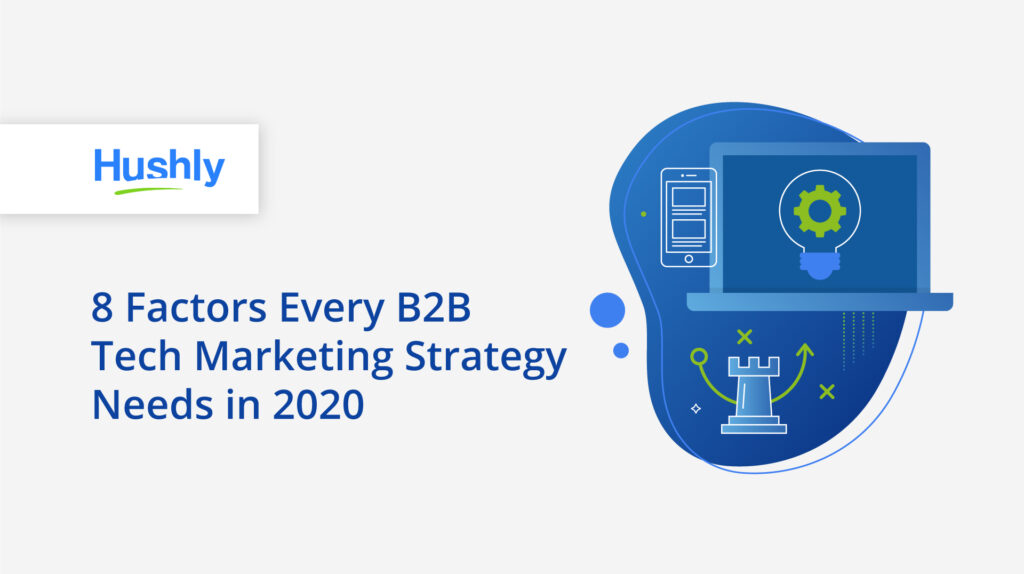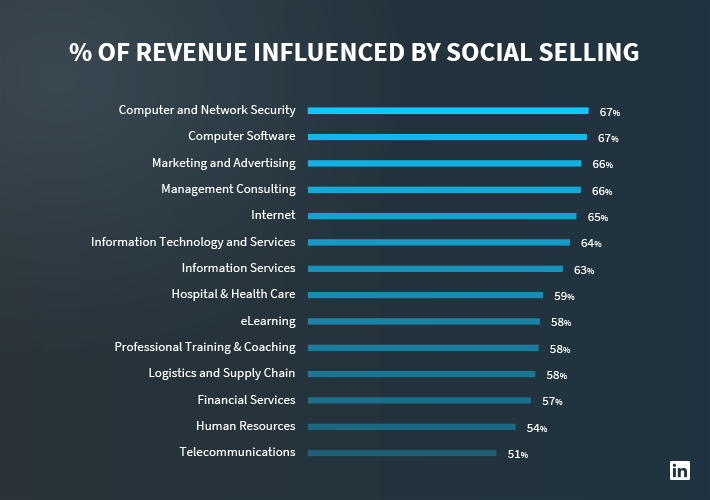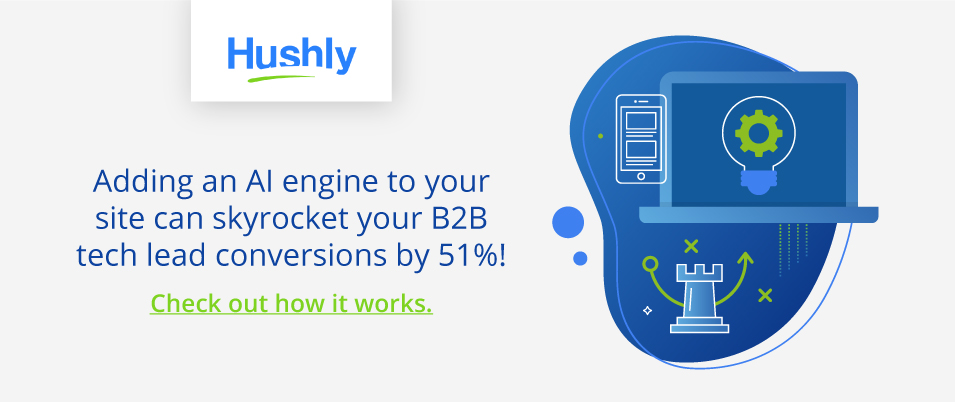The coronavirus has changed how everyone conducts business. As everyone shifts towards a world of working remotely – with many never looking back – certain pieces of technology have become critical for daily work.
Business technology is certainly having a moment and it’s more important than ever to keep your B2B tech marketing strong.
8 Things Your B2B Tech Marketing Strategy Absolutely Needs in 2020
Although 81% of B2Bs admitted in November that they were concerned about a recession, most are still investing in essential pieces of technology.
Your B2B tech marketing strategy should aim to set you apart from all the other choices. It’s not what you say, it’s what you do. Show why you’re the best choice through your user-centric digital experience.
Use your digital technology marketing to educate and offer value.

1. A Relevant and Valuable Blog
Too many marketers concern themselves with the marketing portion of content marketing without putting enough thought into the actual content.
Research shows that 90% of top-performing B2B blogs have one thing in common: They focus on audience needs and problems instead of writing promotional content.
No one wants to read a giant advertisement. Instead, research your audience and find ways to help them. Everyone is struggling right now in the wake of the pandemic so it’s always smart to offer a helping hand where you can. Put their needs first.
2. Personalized Content Assets
Beyond blog posts, you’ll also want to develop personalized content assets to help your audience. Research is important here because everyone likes to consume different types of content.
Research has found that during the buying process:
- 49% of B2Bs consume video
- 64% listen to podcasts
- 76% enjoy infographics
If you’re unsure what your audience likes, shoot for a well-rounded content strategy. Don’t forget downloadable assets too like eBooks and case studies to help empower your audience.
3. A Strong Social Selling Strategy
Some industries – particularly tech sectors – see some 50% of their revenue coming from social selling strategies. That’s huge!
Now more than ever, no one likes an opportunist out to make a quick buck. Instead of using your personal social media accounts to broadcast blogs and company news, use them to build connections with followers, and have conversations.
Branch away from your own profile to leave comments, questions, encouragement, and even jokes on other folks’ statuses.
Social media usage has surged by 20% since the lockdown started. At the end of the day, people will remember who was hanging out on LinkedIn to offer encouragement and laughs versus who was constantly peddling promotional material.

4. Informative Email Marketing Campaigns
Email marketing is one of the best off-site tools at your disposal for nurturing leads. Email service providers offer many advanced automation and personalization tools.
It’s easy to set up automated lead nurturing journeys ahead of time so that when someone converts into a lead, you can send out personalized campaigns.
Consider forming unique lead nurturing campaigns for different companies, job roles, or industries.
As you design your email campaigns, remember to blend a nice mix of problem-solving information with details about your company to build authority. However, skip the promotional material until the end of your lead nurturing campaign.
5. An Account-Based Marketing Strategy or Some Tactics
With everyone away from their corporate IP addresses, now might not seem like the best time to launch an account-based marketing strategy. However, artificial intelligence makes it easy to track accounts and offer personalized content without an IP address.
Create unique content for your best customers to prevent churn. Look for potential accounts to target based on market research and trends.
If you don’t want to invest in an entire strategy, at least give some account-based marketing tactics a shot. For example, you could pepper in company names throughout your blog, chat with key decision-makers on social media, or create new LinkedIn groups to network.
6. Effective Social Media Retargeting Campaigns
Social media – especially LinkedIn and Facebook – is filled with extensive audience insights and retargeting tools to boost your B2B tech marketing strategy.
Again, you don’t want to necessarily focus on converting sales right now. Sure, include a strong CTA in your material but focus on retargeting potential leads with useful blog posts and other content assets.
LinkedIn makes it easy to personalize your messages. Simply plug the URL of a personalized blog post into LinkedIn’s advertising tool to reach everyone on the platform who viewed that blog post.
7. Create a Mobile-First Experience
Last year, Think with Google estimated that 70% of B2B searches would happen on mobile devices in 2020. Well, they didn’t plan for a pandemic and folks working from home either. B2B mobile searches have surely surpassed that 70% statistic by now – at least for the time being.
B2B tech marketing – possibly more than any other sector – needs a mobile-first experience.
The best thing you can do to improve your mobile experience is to remove lead magnet forms. Forms are clunky and intrusive. Once you lift the blockade on your content, visitors will stay longer and consume more content.
8. Focus on Building Partnerships – Not Winning Sales
There’s a reason 80% of B2B customers churn within the first 24 months: Vendors don’t live up to expectations. Instead of focusing on short-term sales, shoot to build long-term partnerships.
Mutually beneficial relationships are always healthier and have better communication than co-dependent ones.
Build a Strong B2B Tech Marketing Strategy with Artificial Intelligence
Artificial intelligence can help you create a personalized experience on your website for every visitor. Whether someone is a known lead or anonymous visitor, everyone gets a completely unique content experience.
Just like Netflix, AI tracks each visitor’s browsing behavior and offers personalized content recommendations that gently guide them down the sales funnel. In other words, you can empower your B2B tech marketing leads by helping them educate themselves.
Plus, more effective on-site analytics can also power your content marketing strategy and retargeting campaigns.
Adding an AI engine to your site can skyrocket your B2B tech lead conversions by 51%! Check out how it works.



